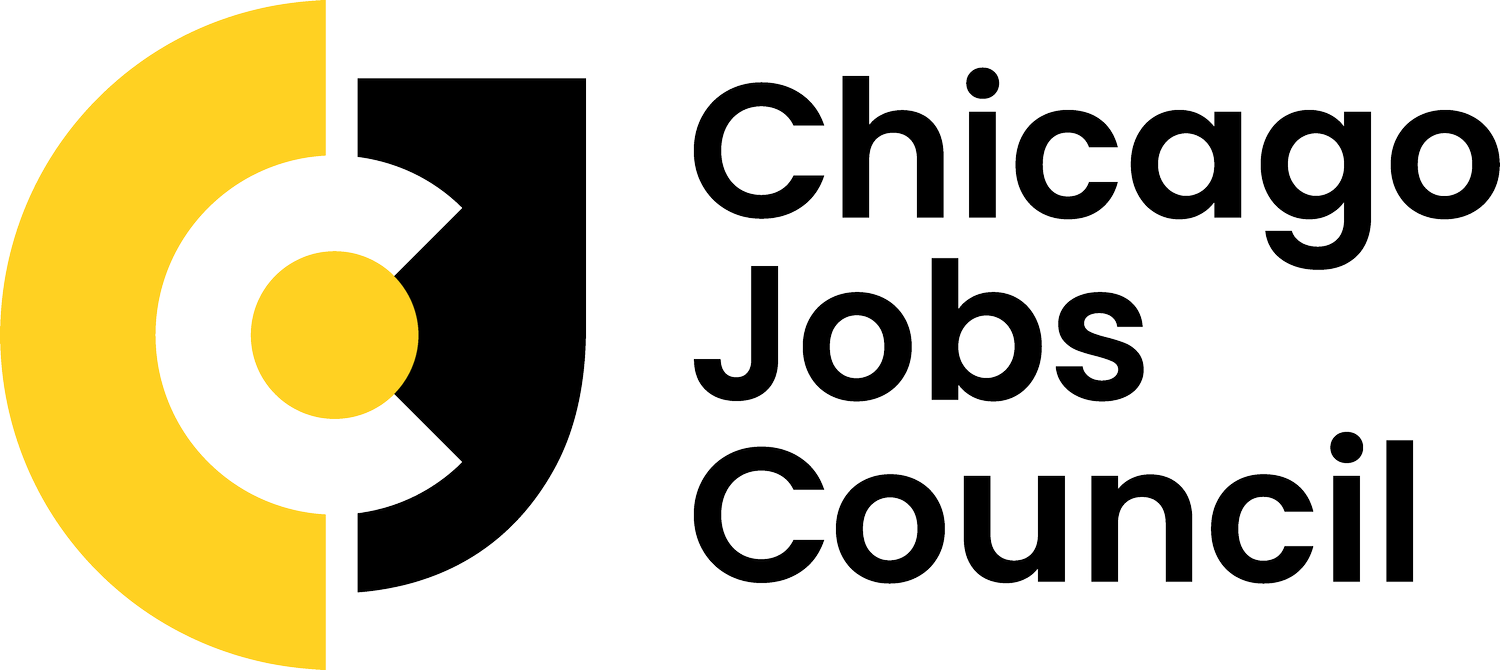FORGING EQUITABLE CAREER PATHWAYS
Every job should be a good job.
That’s why CJC works to ensure that people seeking to expand their basic skills — specifically those from economically disadvantaged groups — can access education, training, and supportive services.
Career Pathways
A job should provide fair wages and opportunities for professional growth. We work to ensure that people seeking to expand their basic skills can access education, training, and supportive services. We worked with diverse workforce partners across Illinois to put forth the Skills for Good Jobs Agenda, a set of policy recommendations that would invest in the state’s workforce development system and help move Illinois towards an equitable economic recovery.
In partnership with Young Invincibles and the Department of Commerce and Economic Opportunity, we released a report called The Third Pillar of Apprenticeship, outlining strategies to make Illinois apprenticeships more diverse and equitable.
We partner with Women Employed and scaleLIT to increase the use of the Career Foundations curriculum in adult education and workforce programs. See the work with the Pathways to Careers Network here.
We helped develop Illinois's statewide definition of “career pathways” to align resources better and ensure access. View the Career Pathways Dictionary.
Clean Energy Jobs
Adapting our economy to a changing climate must also benefit those who have historically been excluded from economic growth. We must ensure jobs specifically for economically disadvantaged groups.
As members of the Illinois Clean Jobs Coalition (ICJC), we supported the passage of the Climate and Equitable Jobs Act.
As part of the Listen, Lead, Share campaign, we’ve solicited input and feedback from the workforce about the most important components of economic justice policy for our clean energy future.
In 2020, we released a report entitled Building Pathways to Clean Energy Jobs in Illinois. The report highlights the importance of investing in the future clean energy workforce as part of public investments in clean energy infrastructure. It is informed by interviews with clean energy employers, workforce development practitioners, and policy experts and uses publicly available labor market and job posting information.
Creation of the Climate and Equitable Jobs Act (CEJA) Chicagoland Grantees Table, where organizations who received grants for the Energy Navigator Transition, CEJA Workforce Hubs, and Climate Works Pre-Apprenticeship workforce programs have a place for information sharing, communication, and streamlined implementation ideas.





